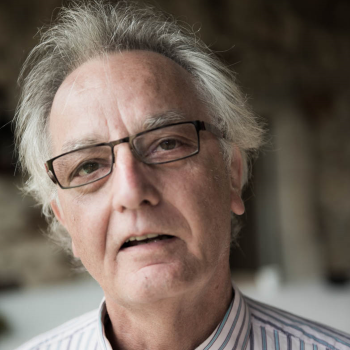|
|
The role of N2O derived from biofuels in earth’s climate
Born in 1933 in Amsterdam, Paul J. Crutzen was trained as a civil engineer and worked with the Bridge Construction Bureau of the City of Amsterdam. In 1959 he joined Stockholm University (MISU) to study meteorology and atmospheric chemistry. His research has been especially concerned with the natural and anthropogenically disturbed photochemistry of ozone in the stratosphere and troposphere. Thereby he identified the importance of nitrogen oxides emitted by fossil fuel and biomass burning, especially in the tropics, as important sources of air pollution with potential impacts on ozone and Earth climate. He served as Director of Research at the National Center of Atmospheric Research in Boulder, Colorado, 1977-1980, and thereafter – until his retirement - (1980-2000) at the Max Planck Institute for Chemistry in Mainz. Until April 2008 he did part-time research at the University of California, San Diego, Scripps Institution of Oceanography. In 1995 he received the Nobel Prize for Chemistry for his work on atmospheric ozone.
![]()
Professor Keith Smith, University of Edinburgh, UK
Born in 1933 in Amsterdam, Paul J. Crutzen was trained as a civil engineer and worked with the Bridge Construction Bureau of the City of Amsterdam. In 1959 he joined Stockholm University (MISU) to study meteorology and atmospheric chemistry. His research has been especially concerned with the natural and anthropogenically disturbed photochemistry of ozone in the stratosphere and troposphere. Thereby he identified the importance of nitrogen oxides emitted by fossil fuel and biomass burning, especially in the tropics, as important sources of air pollution with potential impacts on ozone and Earth climate. He served as Director of Research at the National Center of Atmospheric Research in Boulder, Colorado, 1977-1980, and thereafter – until his retirement - (1980-2000) at the Max Planck Institute for Chemistry in Mainz. Until April 2008 he did part-time research at the University of California, San Diego, Scripps Institution of Oceanography. In 1995 he received the Nobel Prize for Chemistry for his work on atmospheric ozone.
|
|
|
|
Nitrous oxide emissions from wastewater treatment systems
Dr Zhiguo Yuan is professor in environmental engineering, and Deputy Director of the Advanced Water Management Centre at The University of Queensland, Australia. His main research topics are biological nutrient removal from wastewater, greenhouse gas emissions from wastewater systems including both collection and treatment systems, and corrosion and odour management in sewer networks.
Over the past 14 years, he has published over 150 journal papers and presented at numerous national and international conferences. His publications have attracted over 2000 citations to date. His current h-index is 26.
Prof Yuan is a senior editor of the IWA journal of Water Science and Technology. In July 2010, he was appointed one of the 34 inaugural IWA Fellows.
Professor Zhiguo Yuan, University of Queensland, Australia
"Dr Zhiguo Yuan is professor in environmental engineering, and Deputy Director of the Advanced Water Management Centre at The University of Queensland, Australia. His main research topics are biological nutrient removal from wastewater, greenhouse gas emissions from wastewater systems including both collection and treatment systems, and corrosion and odour management in sewer networks.
Over the past 14 years, he has published over 150 journal papers and presented at numerous national and international conferences. His publications have attracted over 2000 citations to date. His current h-index is 26.
Prof Yuan is a senior editor of the IWA journal of Water Science and Technology. In July 2010, he was appointed one of the 34 inaugural IWA Fellows."
|
|
|
|
Session 1 Discussion II
|
|
|
|
Welcome
Professor David Richardson, University of East Anglia, UK
|
|
|
|
Ozone depletion due to nitrous oxide
Robert Portmann is a research physicist working at the Chemical Sciences Division at the NOAA Earth Systems Research Laboratory in Boulder, Colorado. He received his PhD from the University of Colorado, studying middle atmospheric climate change. He is a specialist in middle atmospheric modeling with a focus on processes affecting ozone, including the interactions of halogens and greenhouse gases. He has carried out important studies on the ozone hole, ozone trends at mid-latitudes, and the effects of volcanic aerosol on ozone. In addition, he has studied the radiative forcing and global warming potentials of many chemicals proposed as halogen replacements. He was a coauthor on three WMO Scientific Assessments of Ozone Depletion.
Professor Robert W Portmann, National Oceanic and Atmospheric Administration, USA
Robert Portmann is a research physicist working at the Chemical Sciences Division at the NOAA Earth Systems Research Laboratory in Boulder, Colorado. He received his PhD from the University of Colorado, studying middle atmospheric climate change. He is a specialist in middle atmospheric modeling with a focus on processes affecting ozone, including the interactions of halogens and greenhouse gases. He has carried out important studies on the ozone hole, ozone trends at mid-latitudes, and the effects of volcanic aerosol on ozone. In addition, he has studied the radiative forcing and global warming potentials of many chemicals proposed as halogen replacements. He was a coauthor on three WMO Scientific Assessments of Ozone Depletion.
|
|
|
|
Session 1 Discussion I
|
|
|
|
Session 1 Discussion III
|
|


